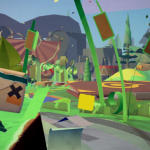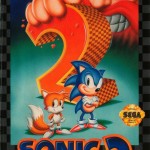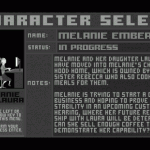When Games Matter is a weekly exploration by Drew Dixon of meaningful moments in games. Operating under the assumption that games do in fact matter, Drew seeks to highlight those moments that have much to say to say about who we are and the world we live in.
Growing up my brother and I were always really close. When I was young, I wanted to do everything he did and most of the time he would let me. We played all kinds of games together–cowboys and Indians, ninjas, and of course war (of all kinds but usually we were fighting the nazis). My brother and I were always on the same team and it was a blast playing with him. We also played videogames together: Zelda, Mario, Contra, Double Dragon just to name a few. These videogames never replaced the imaginary games we’d play, in fact if anything they gave us more ideas. I thought he was the coolest and I still do–my brother is a great guy. As we grew older and my brother left home to go the University of Oklahoma our relationship changed. Mostly because of distance but also because we were just older and our interests were changing. For better or worse, it just wasn’t the same any more.
When my brother finished college, he moved to Chicago for a job as a regional manager for a fuel company. He was out on his own with few friends and little to do other than work. At some point during this time, my brother bought a Playstation 2 and SOCOM: US Navy Seals and began to play fairly regularly. When he asked me to play with him online, I immediately went to the store and bought the game. I didn’t have anything to consider–it was an opportunity to spend time with my brother.
When we first started, we would play on the same team against random opponents online. We were terrible and we lost a lot of matches but it didn’t matter. We had headsets so we could talk to each other as we played, we would work together planning our attacks and warning each other of potential threats. It was like we were kids again fighting to save the world from Nazi invasion. My brother and I were connecting again, in our game sessions we would talk about all kinds of things but mostly we would laugh and commiserate about how terrible we were.
We each had good friends who played the game and eventually we started playing 2 v 2 private matches. These were epic matches. My brother’s friend was really good and SOCOM is not like other shooters which allow you to respawn into the level each time you die. In most SOCOM matches, when you died, you had to wait until the game was over and a new match began to get back in. This made every movement feel important. It required team work, vision, and strategy. It didn’t necessarily matter who was the most dexterous with a PS2 controller, what matter was who was sneakier and smarter. My favorite mode required one team to sneak into the other’s base, set a bomb to detonate, and then escape. You couldn’t make any mistakes along the way or you were sure to lose.
Our SOCOM matches were intense. It was the team with the best strategy that most often won–you had to work with your teammate or you were sure to be watching the rest of the game as a spectator and leaving your teammate out to dry. These games felt epic–partly because of the way SOCOM was designed and partly because I was playing with my brother. Sadly my brother no longer plays videogames very much but I am glad he did if only for a short time. I don’t ever want to forget what it was like growing up playing games together.










